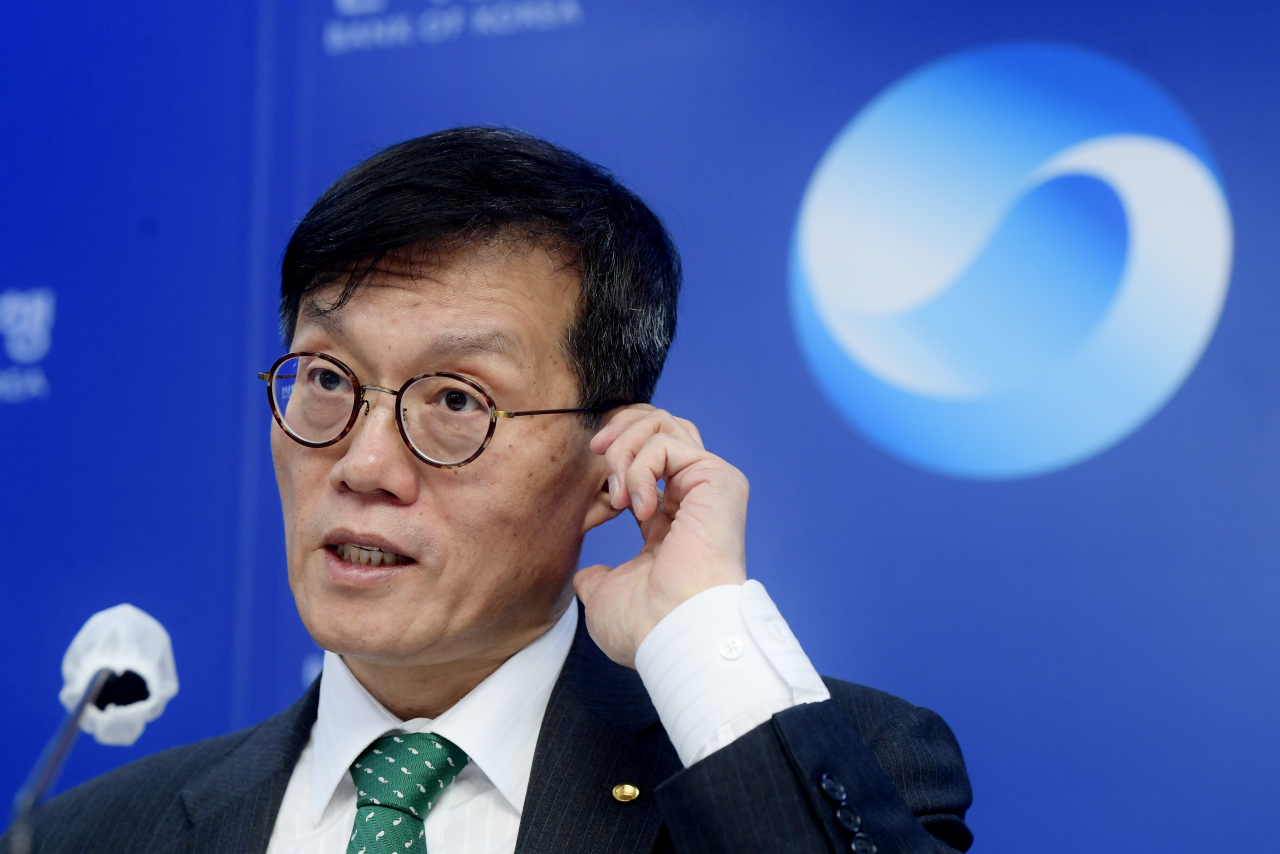Monetary policy will keep focus on fighting inflation in 2023: BOK
This year's inflation rate projected to be highest since 1997 financial crisis
By Im Eun-byelPublished : Dec. 20, 2022 - 15:02

The Bank of Korea is likely to continue with its aggressive monetary tightening stance next year, as inflation is expected to remain well above its target.
The nation's inflation rate is expected to remain at around the 5 percent range "for the time being" and then to be moderate over the next year as oil prices stabilize and higher interest rates slow the local and international economies, said Rhee Chang-yong, governor of the Bank of Korea, at a press briefing at the central bank’s headquarters in Seoul, Tuesday.
"Despite the recent slowdown, the inflation rate is presumed to exceed the 2 percent target next year," Rhee said, adding the monetary policy of the central bank will continue to focus on bringing down the high inflation.
The governor said Asia's fourth-largest economy will face more difficulties in the first half of next year which will come at the borderline of a recession.
"As uncertainty about the slowdown in the inflation rate remains high, we will look into how previous policies have affected the domestic economy, considering the interest rate policies of major countries including the US Federal Reserve's actions," Rhee said.
The inflation rate has remained significantly high.
The consumer price index between January and November showed an average of a 5.1 percent on-year increase, exceeding the 2 percent target set by the central bank.
The figure is also higher than that of 4.7 percent from the same period in 2008, when the nation was hit by the global financial crisis. It is the highest rate recorded since the 7.5 percent noted in 1998, when the Korean economy plummeted due to the 1997 Asian financial crisis.
The silver lining is that the CPI has passed its peak. The rate stayed in the 3 percent range at the beginning of 2022 and peaked at 6.3 percent in July, before it eventually fell to the 5 percent range, the central bank said.
“Though the consumer price inflation rate will continue to increase at around a rate of 5 percent, the downward pressure from in and out of Korea will grow, and the rate will eventually fall next year,” Rhee forecasted. “The speed of the slowdown remains highly uncertain, as it is related to the national and global economy’s growth, oil prices and more.”
In a Monetary Policy Committee meeting held in end-November, the BOK predicted the yearly inflation rate to be at 5.1 percent in 2022, 3.6 percent in 2023 and 2.5 percent in 2024, falling near the central bank’s target range.
Meanwhile, Rhee drew the line at discussing the possibility of a rate fall for 2023. The central bank had aggressively raised its policy rate this year amid inflation woes and the Federal Reserve’s hawkish moves.
"I haven't discussed (the interest rate) with the Monetary Policy Committee members after the Federal Open Market Committee's meeting held this month," Rhee said. "But we had agreed in the November meeting that it would be premature to discuss a fall in the interest rate."
The next rate-setting meeting is slated to take place on Jan. 13.
"Most members agreed that a fall in the rate should be discussed when there is more solid evidence on whether the inflation rate will meet our medium- and long-term target," he said.
Rhee further stressed that the central bank will prioritize price stabilization next year.
“Monetary policy prioritizing prices is the duty of the Bank of Korea, which cannot be changed,” Rhee said.







![[KH Explains] How should Korea adjust its trade defenses against Chinese EVs?](http://res.heraldm.com/phpwas/restmb_idxmake.php?idx=644&simg=/content/image/2024/04/15/20240415050562_0.jpg&u=20240415144419)












![[Today’s K-pop] Stray Kids to return soon: report](http://res.heraldm.com/phpwas/restmb_idxmake.php?idx=642&simg=/content/image/2024/04/16/20240416050713_0.jpg&u=)